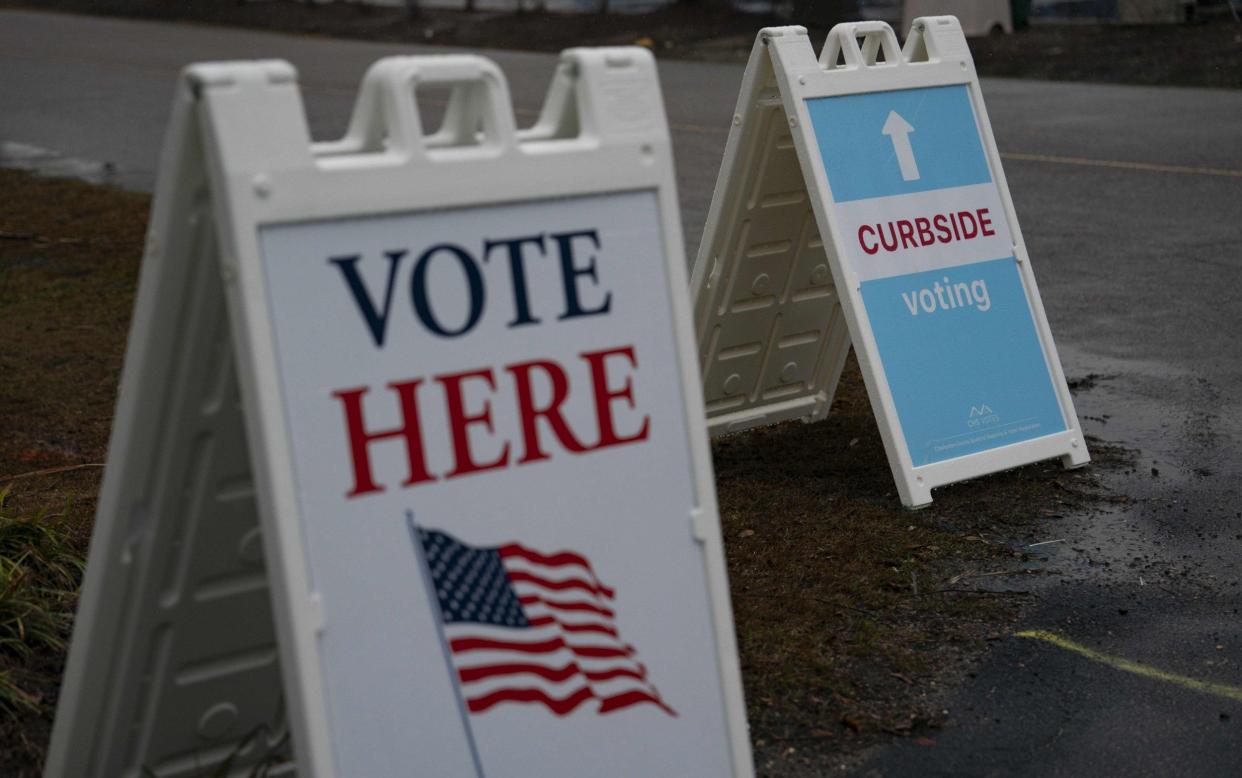Postal ballots are a menace to our democracy

- Oops!Something went wrong.Please try again later.
- Oops!Something went wrong.Please try again later.
- Oops!Something went wrong.Please try again later.
On January 27, a front-page New York Times story scolded tech entrepreneur Elon Musk, owner of social media site X for failing to heed a message that Twitter’s “fact checkers” had posted in 2020. That message challenged then-President Trump’s warning that increased use of mail-in ballots could facilitate voter fraud, leading to a “rigged election.” In response, the checkers attached a “content label” to Trump’s message, exhorting him to get his “facts straight,” since according to “experts... mail-in ballots are very rarely linked to voter fraud.”
Now that Musk has “dismantled the platform’s system for flagging false election content, arguing [that] it amounted to election interference,” the Times reports, Musk’s “early election-year attacks” on what the paper terms “a tried-and-true voting method” are raising alarms that “his control over the large social media platform” enables him “to re-ignite the doubts about the American election system” that inspired the assault by Trump followers on the Capitol on January 6, 2021.
There is no justification for the outrageous events of January 6. Nor has anyone brought forth credible evidence that voter fraud occurred in the 2020 election on such a scale as to tip the outcome in favor of Joe Biden. Nonetheless, the denial by the Times’s unnamed “experts” that mail-in ballots, the acceptance of which on a no-excuses basis has become far more widespread over the last several elections, are more susceptible to fraud than in-person voting is implausible.
Since the early nineteenth century, states have rightly authorised mail-in voting for persons who were unable to vote in person. That category included persons suffering from disability or serious illness; military personnel stationed away from home; and citizens living or traveling abroad. By 2020, however, to make voting easier, five states had scheduled entirely mail-in elections – even before the pandemic. By then, twenty-nine states and Washington allowed “no-excuse” absentee voting, along with sixteen that authorised mail ballots for those with a legitimate excuse. As far back as the 2016 presidential election, about one in four voters submitted mailed ballots.
While mainstream scholars still deny that widespread use of absentee ballots has generated a high degree of voter fraud, common sense dictates that it’s easier to get hold of a ballot in someone else’s name (or collect a bunch of them) than when one has to appear in person to vote.
The Times itself offered evidence of the problem only recently, in a story on how the primary victory last September of Mayor Joe Ganim in Connecticut’s most populous city, Bridgeport (pop. 150,000) had been voided by a judge “after videos surfaced showing the mayor’s supporters making repeated trips to drop boxes and stuffing them with wads of absentee ballots” during the Democratic primary, in a volume sufficient to call the election result “into serious doubt,” according to Judge William Clark.
While ordering a rerun of the primary, the judge said he lacked the authority to halt the general election, scheduled just days after his ruling. Although Ganim won a second primary, a new general election has now been set for February 27, potentially pitting Ganim against his previous primary opponent, now likely to run as an independent.
Bridgeport, as the Times story adds, “has long been plagued by accusations of election irregularities, particularly the mishandling of absentee ballots” by candidate supporters. In particular, “residents of the city’s low-income housing complexes have described people sweeping through their apartment buildings, pressing them to apply for absentee ballots they were not legally entitled to, and sometimes even filling out the applications and returning the ballots for them,” all violations of Connecticut law.
Last June the State Elections Enforcement Commission reported evidence of possible criminality in the 2019 mayoral primary, while in 2017 “a judge ordered that a Democratic primary for City Council seats be rerun” after a single “improperly handled” ballot “decided the race,” and in 2022 a Democratic primary for state representative had to be rerun following allegations of “absentee ballot fraud.”
To boot: Mayor Ganim, who “spent seven years in prison on federal corruption charges” before regaining office in 2015, “has repeatedly lost the in-person vote in his elections, but then been “swept his competition” thanks to absentee ballots.
Thus we find an appalling record of mail-in ballot abuse in just one city, and not in a state traditionally most noted for election corruption. And contrary to the claim that voter fraud of various sorts is too rare nationwide to be a serious issue, one should consult Wall Street Journal writer John Fund’s balanced 2004 study Stealing Elections: How Voter Fraud Threatens Our Democracy.
While Fund debunks the sorts of election-conspiracy myths espoused by filmmaker Michael Moore (later imitated by Trump), he warns of the dangers of corruption generated by loose absentee-voting rules, and recommends stricter voter-ID requirements at the polling place (just the policy now denounced by Democrats as intended to deter minorities from voting, but never demonstrated to have that effect).
Aside from reducing corruption, in-person voting on Election Day may encourage citizens, in the presence of their neighbors, to vote on the basis of a more thoughtful judgment of the public good, not merely from sheer partisanship or the hope of private gain. And if you just can’t be bothered to show up, should your vote count at all?

